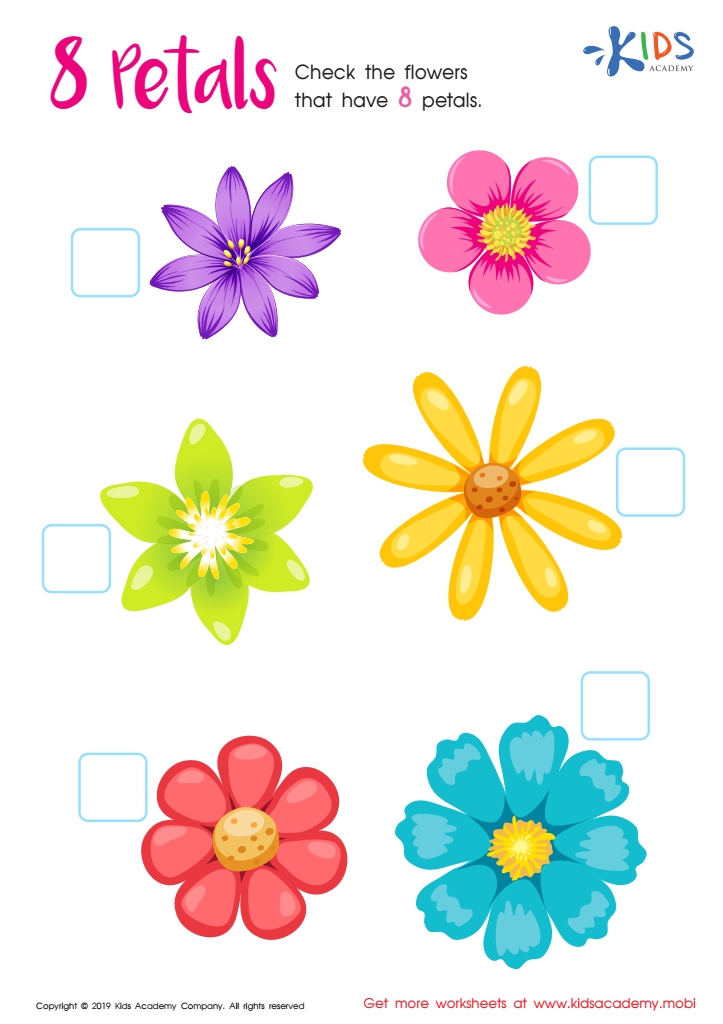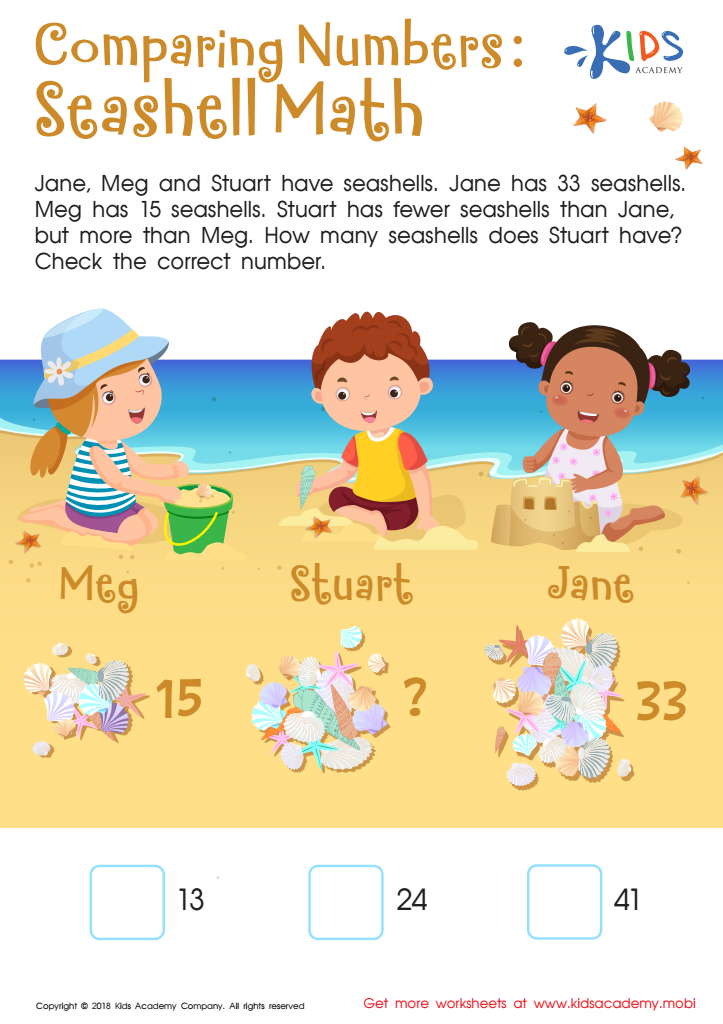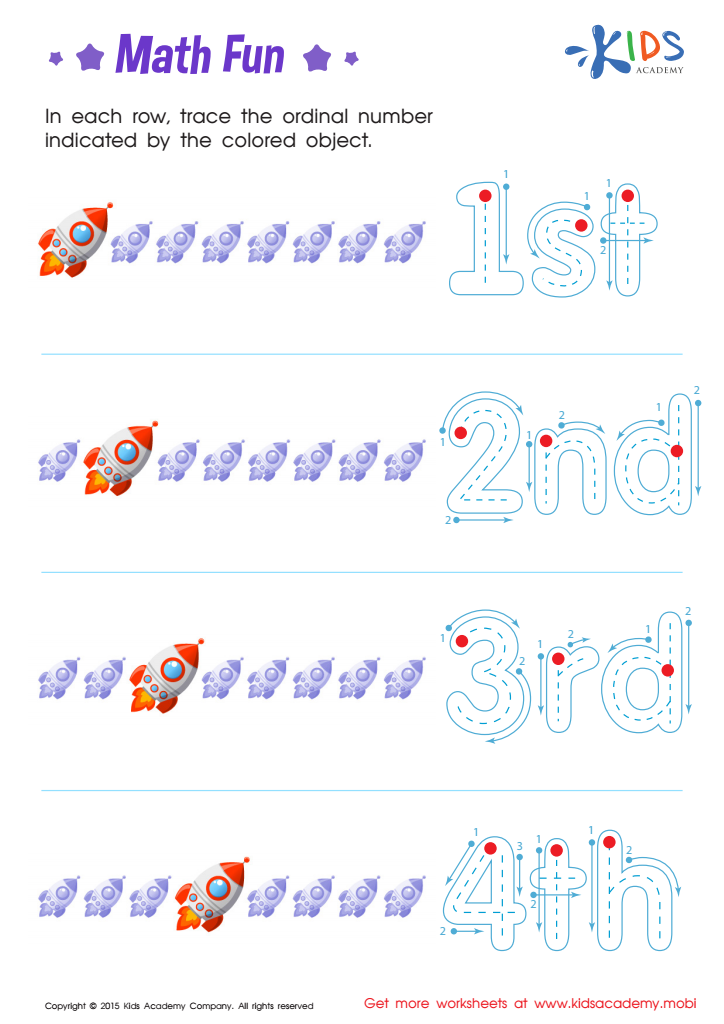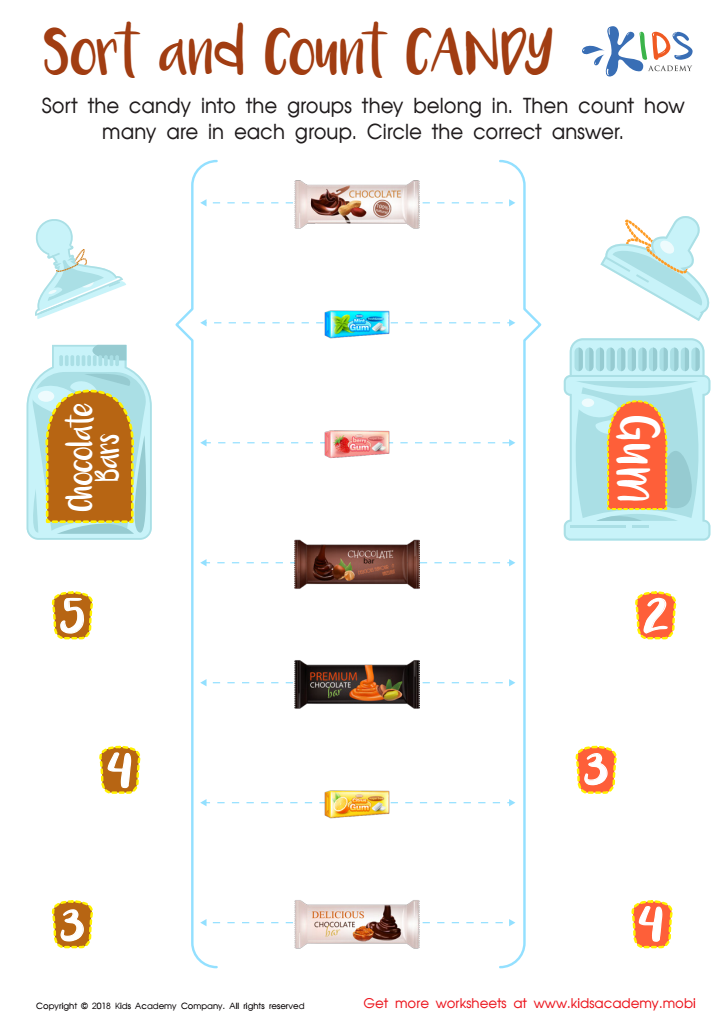Color recognition Normal Numbers Worksheets for Ages 5-7
4 filtered results
-
From - To
Introducing our vibrant Color Recognition Normal Numbers Worksheets, specially designed for children ages 5-7! These engaging, educational printables combine fun coloring activities with number recognition exercises, making learning enjoyable and effective. Each worksheet encourages young learners to identify and color numbers, enhancing their understanding of basic math concepts while developing fine motor skills and color recognition. Perfect for both classroom and home use, our worksheets provide a creative way for kids to strengthen their numerical knowledge and visual perception. Download now from Kids Academy to support your child's educational journey with interactive, playful learning!


8 Petals Worksheet


Seashell Collectors Worksheet


Ordinal Numbers: Math Fun Worksheet


Sort and Count Candy Worksheet
Color recognition and number identification are fundamental skills for children aged 5-7, serving as building blocks for more complex cognitive and academic abilities. Recognizing colors enhances a child's visual discrimination, a crucial skill for distinguishing objects, signs, and texts in their environment. It supports vocabulary development and descriptive language, as children learn to associate names with specific visuals, enriching their communication skills.
Identifying numbers is equally important, laying the groundwork for primary math concepts. It's not just about counting; number recognition is integral to understanding quantities, basic arithmetic, and patterns. These skills are foundational for future math learning and everyday practical contexts like telling time, recognizing money, and measuring.
For parents and teachers, prioritizing color recognition and number identification means providing children with critical tools for academic success and everyday problem-solving. Addressing these areas early can lead to better school readiness, increased confidence, and a love for learning. Activities like sorting games, counting exercises, and playful color-based tasks can make learning enjoyable and effective, fostering an environment where children thrive. By supporting these skills, we set the stage for children to excel in all later areas of education and daily life.
 Assign to My Students
Assign to My Students
















